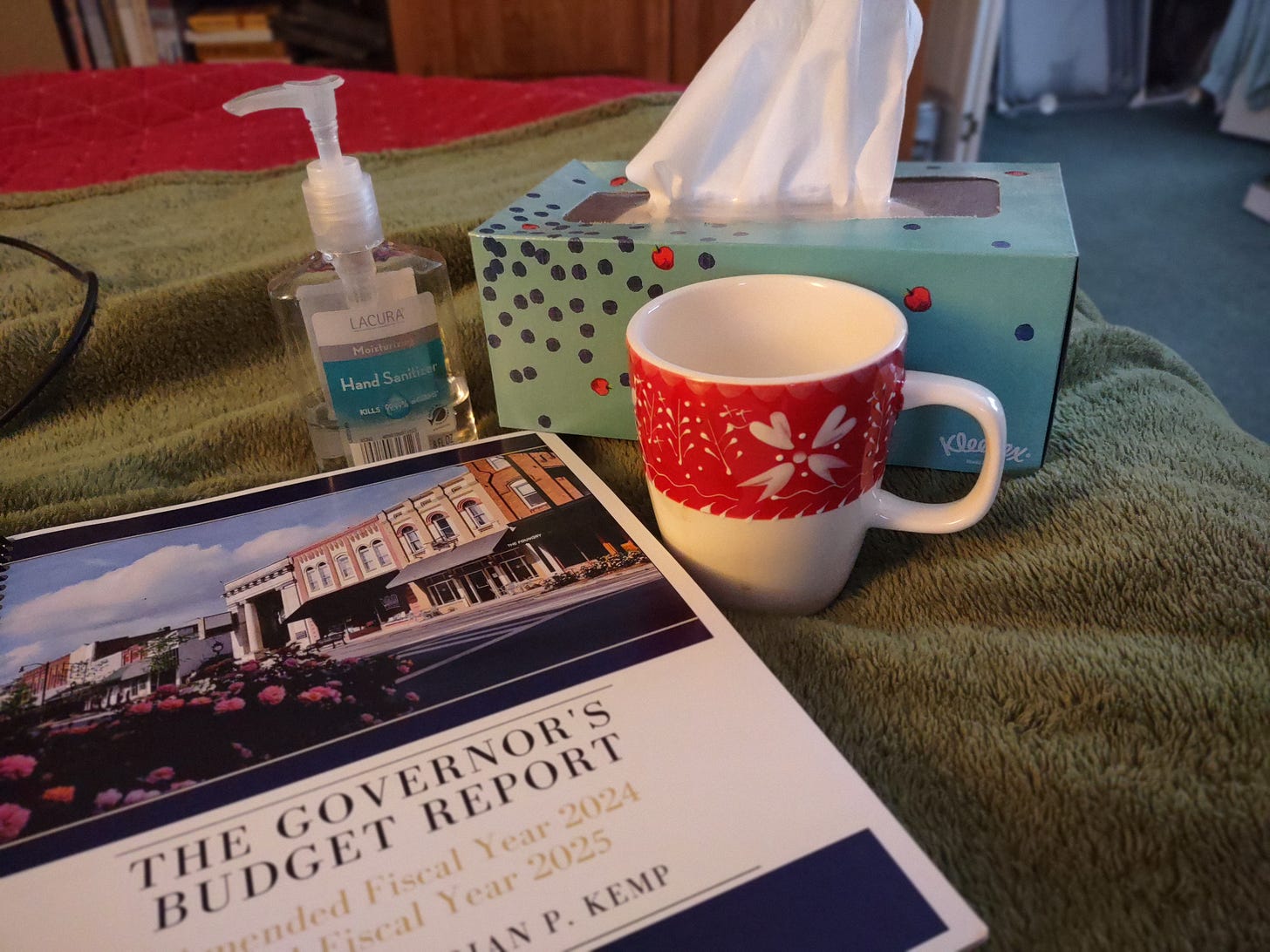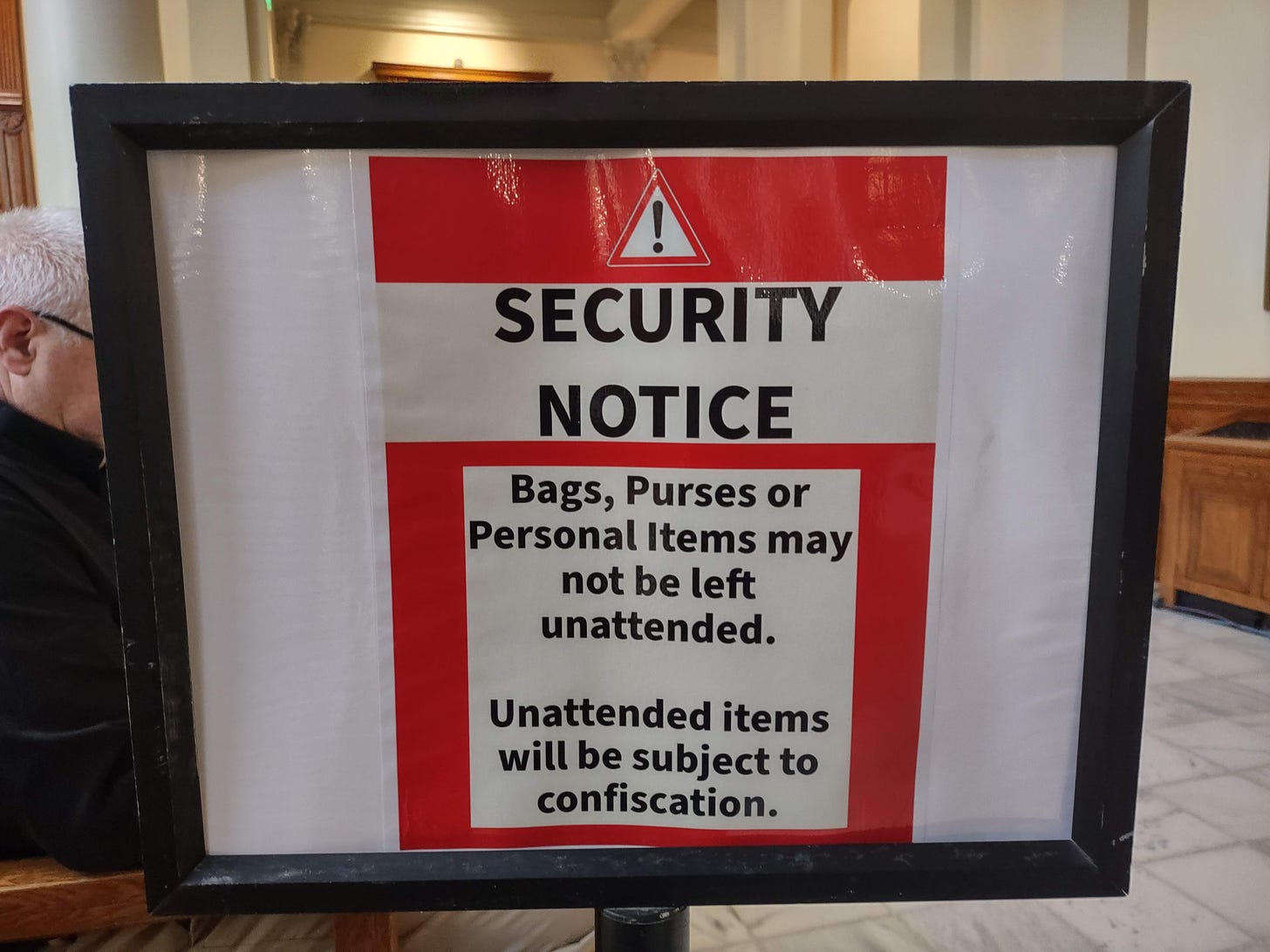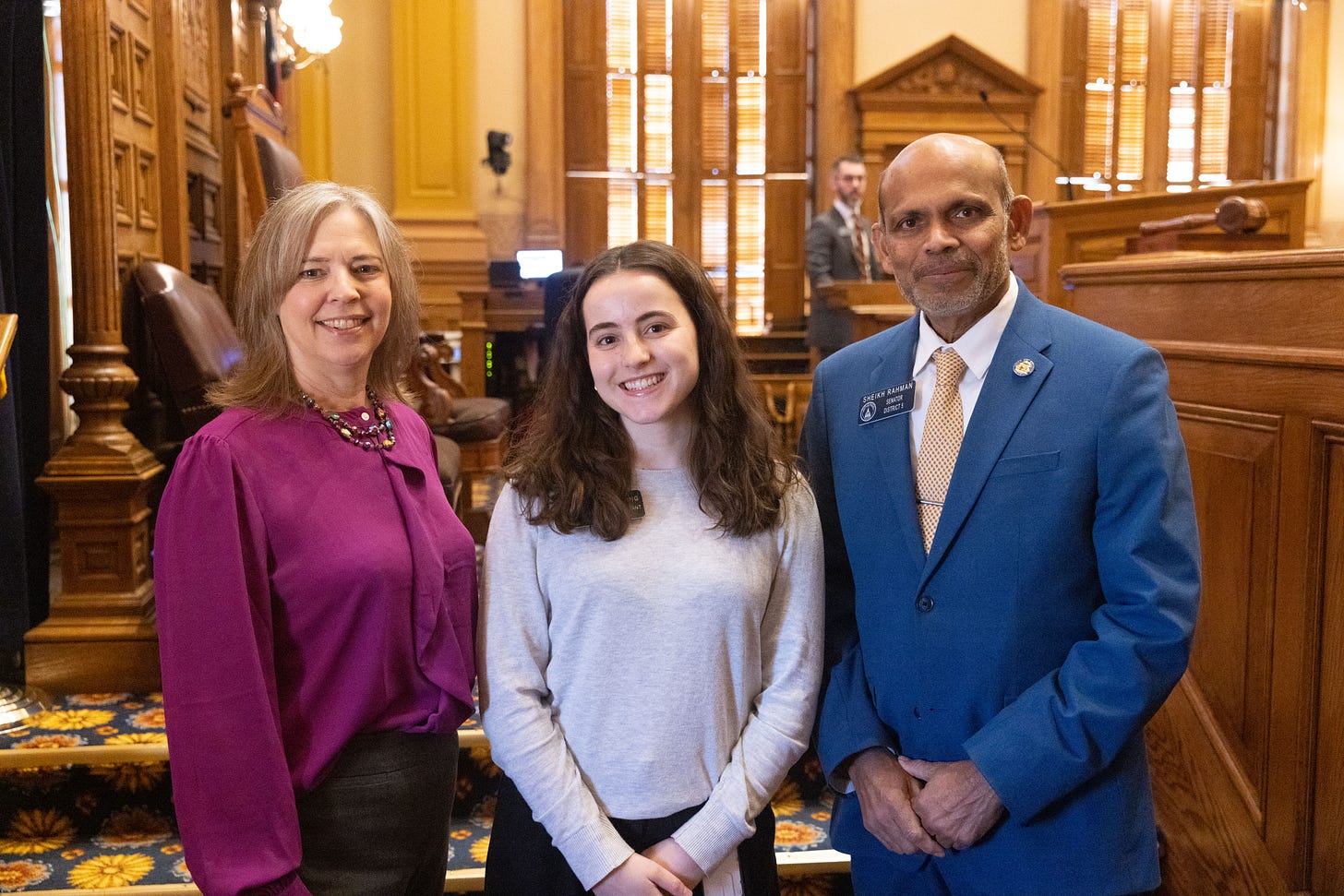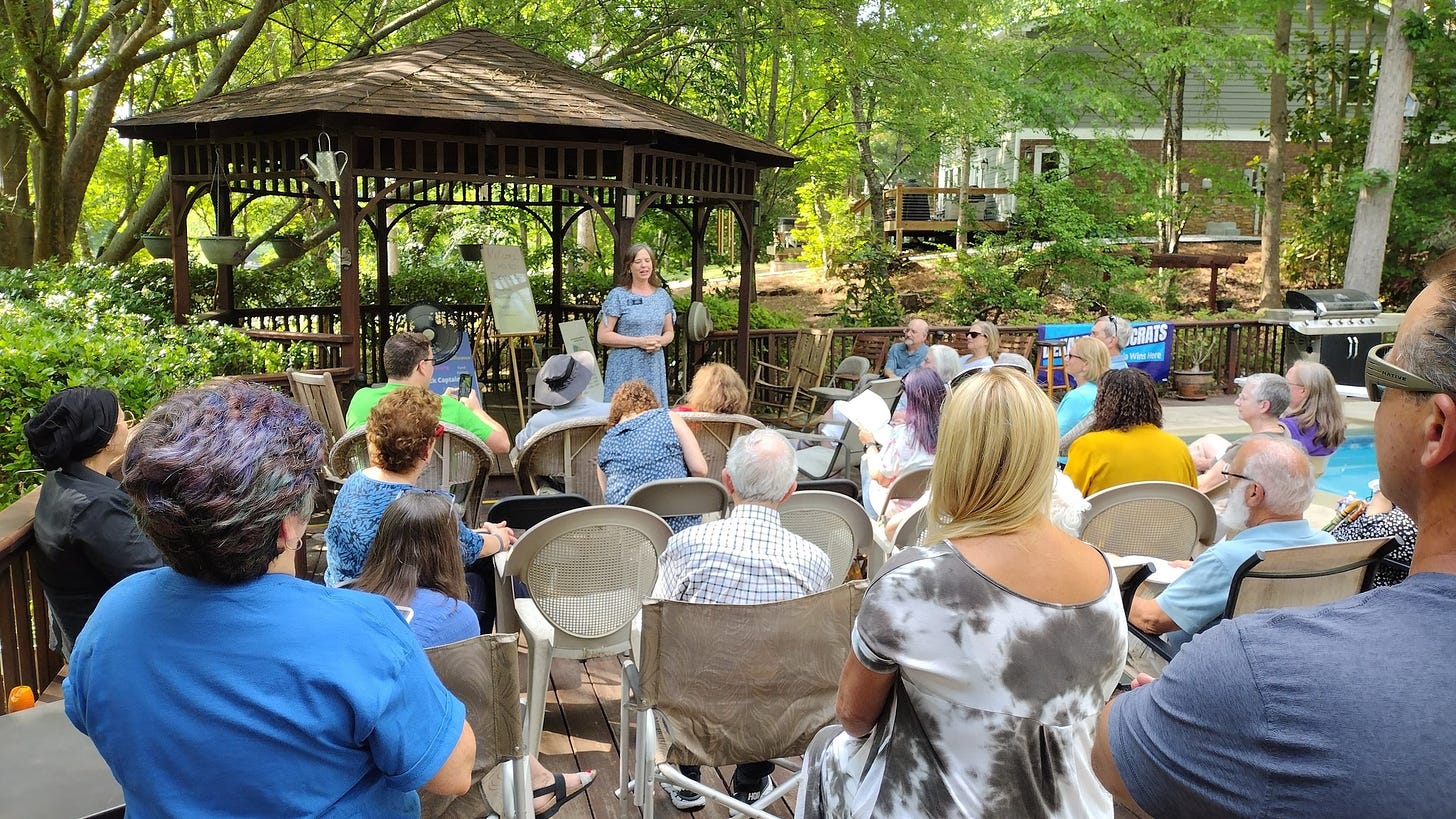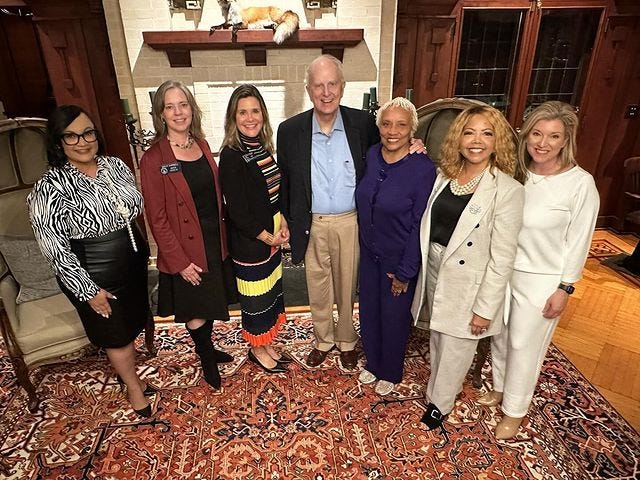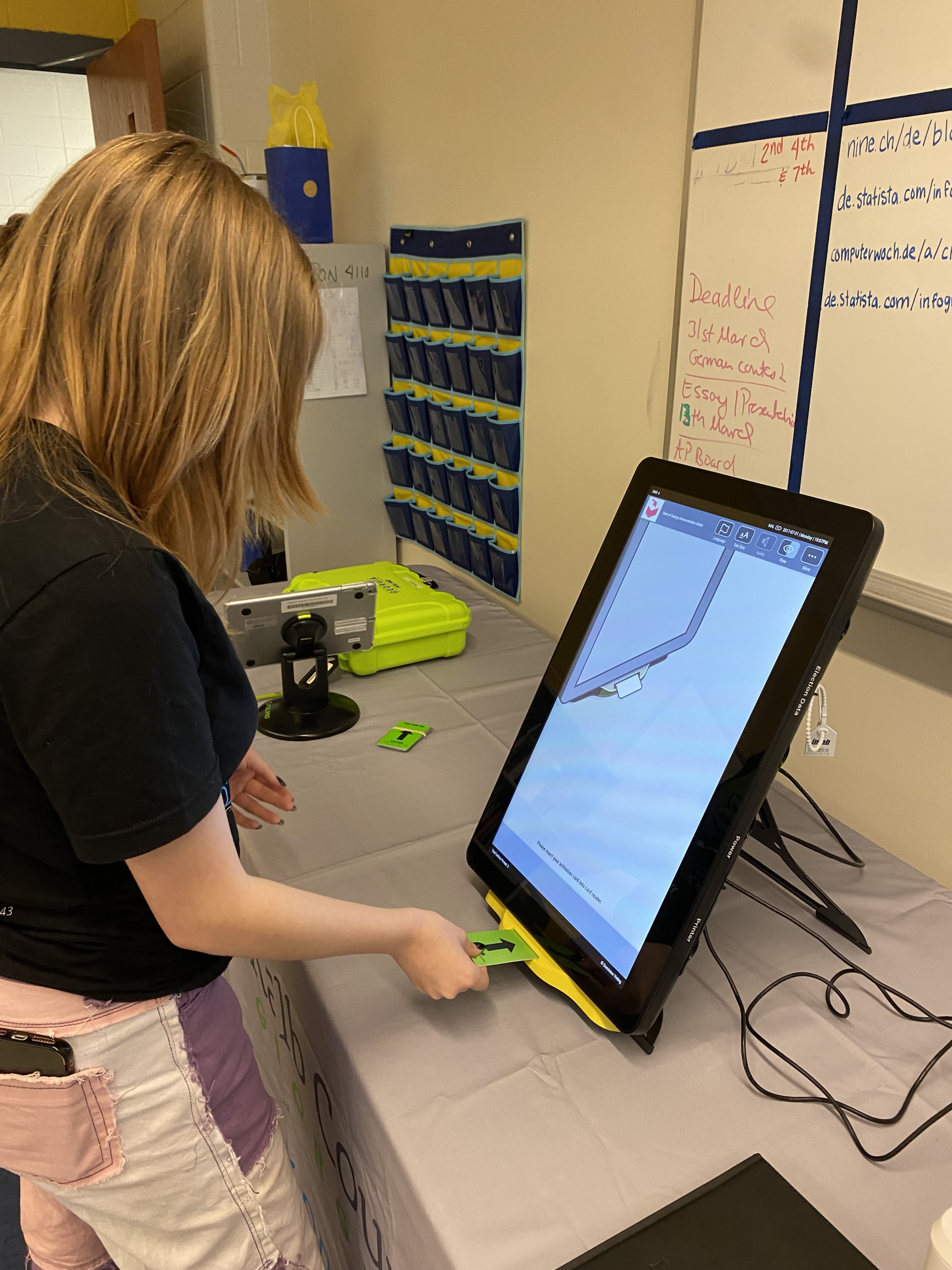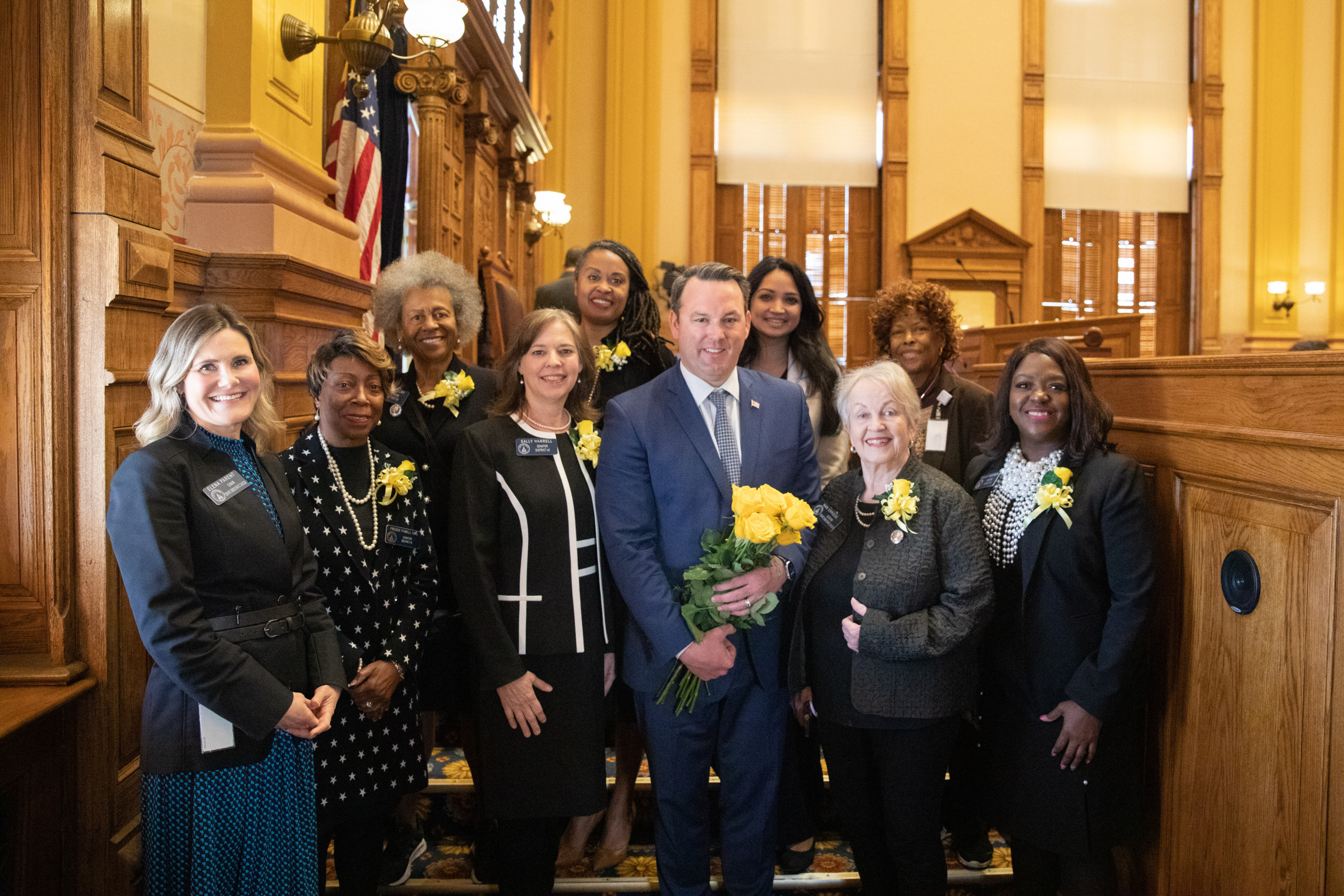A Health Update: Sally and the State of Georgia
COVID Knocks Me Off My Feet
Remember all those crowds I told you about last week? No surprise that COVID was lurking around, and sadly, it found me for the first time. I tested positive Monday morning and spent most of the week in bed. Friends delivered a potpourri of soups — matzoh ball, Indian curry, Turkish lentil, Mexican tortilla! (And no, I didn’t lose my sense of taste or smell.) My husband Jay made countless trips up and down the stairs, leaving soup outside my door. Thankfully, he somehow managed to not catch this nasty virus from me.
The State Budget Gets its Annual Check Up
If a legislator is going to get sick during session, week two is the time to do it! This is when everything pauses so Department Heads can pitch their budgets to legislators. There are two proposed budgets: The (1) amended FY 2024 and (2) the proposed FY 2025. The 2025 budget year begins July 1, 2024.
I watched budget hearings virtually while in isolation. As I drifted in and out of sleep, I knew my Chief-of-Staff, Amy Swygert, was there to catch the details. Without her, you would not be reading a “Snapshot” this week. Thanks, Amy!
Georgia’s Economic Health Report: Slowing, but Stable
Budget Week begins with a report from the State Economist, who advises the Governor on the next year’s revenue estimate. We have a new face in this role this year — Dr. Robert Buschman, from the GSU Andrew Young School of Public Policy.
Dr. Buschman’s diagnosis is that Georgia’s economy will slow some in the first half of this year, ultimately returning to pre-pandemic economic levels. He described this as a soft landing, and estimated the FY 2025 revenue to be $36.1 billion.
Second Opinions on How to Treat the Budget
Take a Careful Look: On the surface, the budget highlights look positive, featuring a net increase in spending of $3.7 billion above FY2024 levels for FY2025. Targeted areas of increased spending include Pre-K, school transportation, raises for teachers and state employees, literacy coaches, and behavioral health crisis centers, just to name a few — all things Democrats have long advocated.
But it’s important to dig a little deeper, to determine if Georgia is actually better off now than it has been in the past. I would say no. For example, according to the Georgia Budget & Policy Institute, even with the teacher pay increases Kemp has funded, annual teaching salaries would need to be almost $8K higher to keep up with the rate of inflation.
Governor Kemp has helped to create the crisis he is now proposing to fix, and we should not applaud.
Going back to 2019, he ordered Department Heads to slash their already lean budgets twice, totaling 10%. Around that same time, Georgia’s 6% income tax rate, which had been in place since 1939, was lowered to 5.75% and was scheduled to be lowered again. All this caused a budget crisis when Hurricane Michael hit south Georgia and people needed help. But the GOP didn’t learn. Scheduled to go down to 5.49%, Governor Kemp recently announced he’d like to go further, bringing the state income tax to 5.39%.
Governor Kemp campaigned on blowing-up state government, and I think he’d agree — he’s done a fine job of that!
The Wrong Prescription
Low-balling the Revenue: During the last two years, the Governor has repeatedly underestimated the revenue by $5 or $6 billion each year, making it sound like the government has taken in way more than it needs. He’s given tax refunds while ignoring real human needs and the state’s crumbling infrastructure. And after the legislature passed the 2024 budget, the Governor announced more budget disregards and line-item vetoes than anyone has ever seen, to the point of discrediting the legislature’s role in the budget process. Many of those budget disregards will get baked in permanently unless the legislature intervenes.
It’s About the Public Schools: Remember over half this shrinking state budget funds our public schools. The big question this session is whether or not there are the votes to defeat school vouchers once again. Though I have heard from families who need this extra cash to afford a private school option, analysts believe that after years of austerity, our public schools cannot survive that much money flowing out of Georgia’s system.
Gas Tax Tricks: Additionally, every time the Governor suspends the gas tax, the burden of funding roads and bridges is shifted to the general budget. This shifts the tax burden for roads from those who use them the most, including corporate trucking companies, to the citizens of Georgia, regardless of how much they drive.
Georgia’s budget was already lean. Now the GOP has made Georgia mean.
Georgia Foster Care System On the Mend
I have seen many politicians make “tax cut” promises and then get appointed as Department Heads. On the frontlines, they learn the impact of government on real lives. One of those state leaders is Governor Kemp’s former Communications Director, Commissioner of Human Resources, Candace Broce.
Broce told us during the budget hearings that Georgia is now mostly cured of the “hoteling” practice we learned about last year where foster kids with huge mental health needs are stuck in hotels or office buildings with minimal supervision. Choking back tears while trying to gain her composure, the Commissioner described her year-long effort to eliminate hoteling, speaking passionately of the long, hard hours child protective service agents put in, often in highly-charged, dangerous circumstances.
Higher Education Off the Ventilator
Last year, University System of Georgia Chancellor Sonny Perdue gave a sober report on declining enrollment at our public universities and subsequently saw his budget cut by $66 million. This year enrollments were up, and so is his budget!
Governor Kemp has introduced a new “Georgia Match” program which sends every qualified high school student a letter saying which Georgia colleges and/or universities they are eligible to attend, based on their HOPE GPA. Though they still must apply for admission, this extra attention may encourage a few young people to go to school who otherwise might not. In the coming years, “Georgia Match” can be used to evaluate why some chose not to attend college, including those who simply cannot afford it. I’ll be working behind the scenes to help these students.
Disability Caregiver Support Coming Out a Coma
As soon as I got my big budget book, I turned straight to the Department of Behavioral Health and Developmental Disabilities section. I was pleased to see almost $80 million to increase wages for providers who care for adults with intellectual and developmental disabilities. In 2022, I passed SB 610 that requires wage rate studies for several Medicaid programs, after learning it had been years since these studies had been completed.
I’ve been working with the disability advocacy community on this issue ever since I served in the House. After years of underfunding, it’s rewarding to see all of our work beginning to pay off.
Up Next…
My health has turned the corner and I’m hoping to be back in action at the Capitol early next week. There will be lots of activity around reproductive rights this week. Monday is Roe v. Wade Day and there will be a press conference at 1 pm, and a Reproductive Rights public hearing held by Representative Shea Roberts and her House Democratic colleagues at 2 pm at Central Presbyterian Church across from the Capitol. A number of groups will be at the Capitol midweek for an advocacy day. We’d love to see you there!
